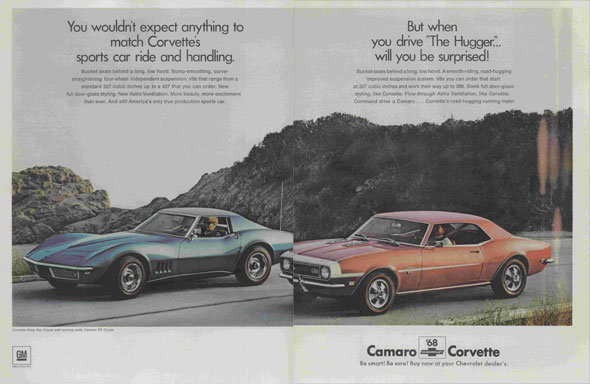Vintage Auto Ads: Chevrolet
Though Ford would start the 1920s as the invincible market leader, it was General Motors’ Chevrolet sales that finally pushed Ford out of the No. 1 spot in 1927. Due in part to its advertising in magazines like The Saturday Evening Post, General Motors would continue to hold the top slot in all but 5 of the next 50 years.
For more on the auto industry’s early years, check out Post‘s new special collector’s edition, Automobiles in America!
When William Durant and Louis Chevrolet’s Classic Six rolled out in 1912, it was selling for $2,150. But by 1925, Durant was offering models for $695 to lure buyers away from Ford’s inexpensive Model T.
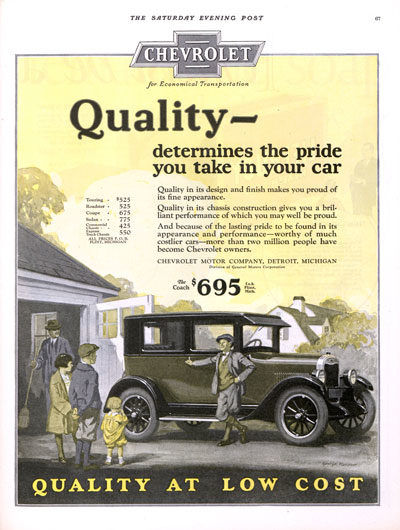
By 1927, Chevrolet had overtaken Ford in sales. Determined to hold onto its lead, the company developed new car features throughout the 1930s, including a new cast-iron, straight-six cylinder engine, hydraulic brakes, V-grilles, and hydraulic brakes.
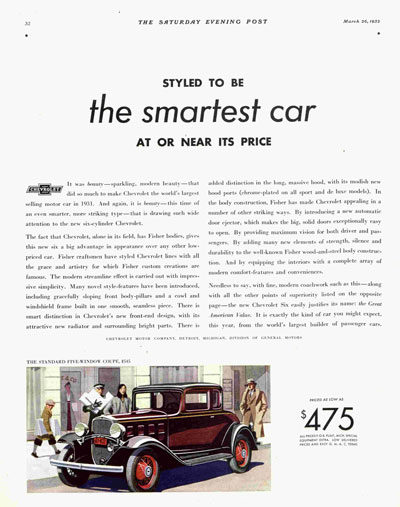
When the company resumed auto production after World War II, Chevy’s new Fleetmaster series seemed little different from its prewar models.
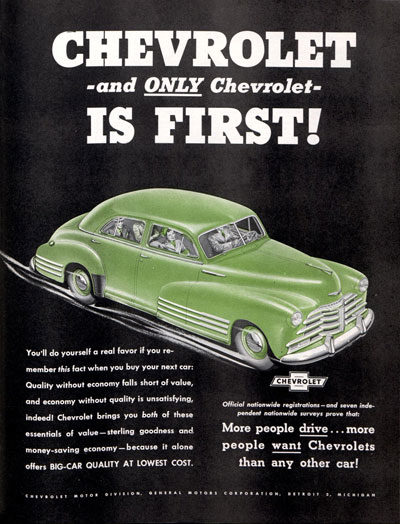
Several new models were introduced in the 1950s: the Nomad, El Morocco, 210, 150, Impala, El Camino, and this classic, the Bel Air with its “zippy, thrifty automatic transmission.”
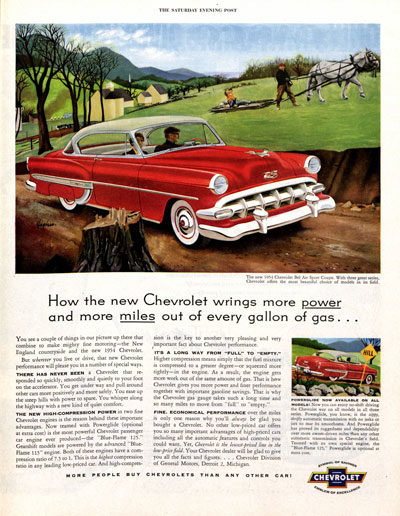
Chevrolet had developed a new “small-block” 162 hp V-8 engine, which could take the Bel Air from 0 to 60 mph in … 12.9 seconds.
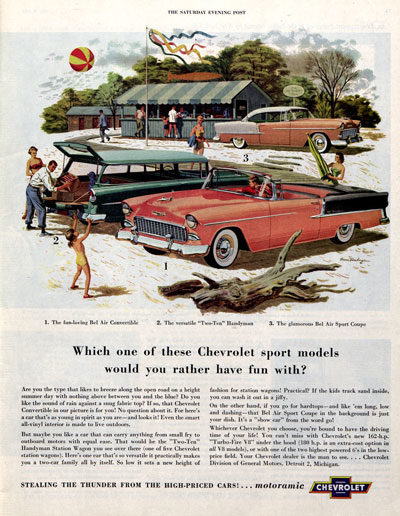
The 1956 Bel Air became even more extravagant with chrome details, including trim that ran from the rear to the front of the car and back again.
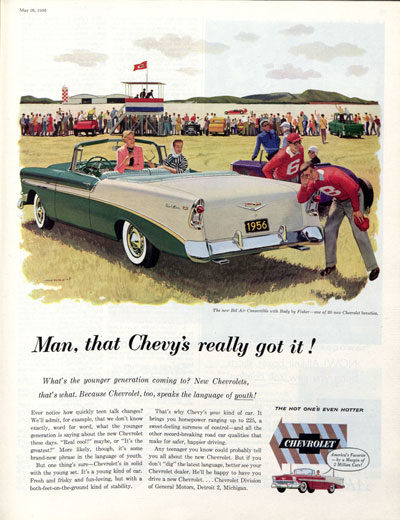
The 1957 Bel Air was destined to become one of the classic American automobiles, highly prized by collectors.
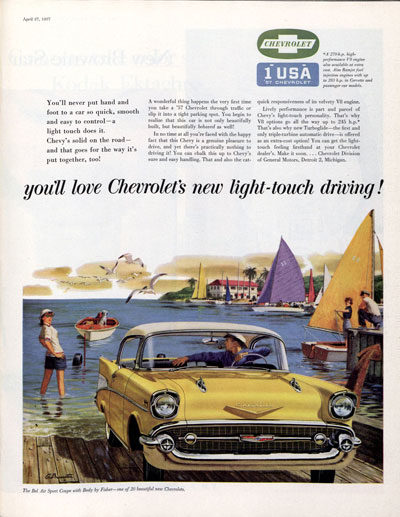
In 1959, Chevrolet needed two pages to show off their new models. They included the Corvette, now in its fifth year of production, and the Imapala — with a longer, lower, wider body.
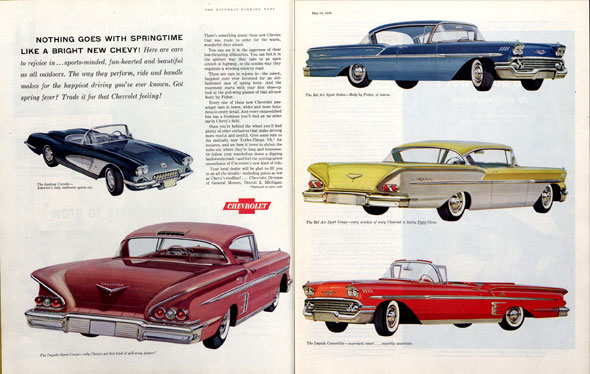
The jutting tailfins of the 1957 Bel Air relaxed into the flattened gullwing by 1959.
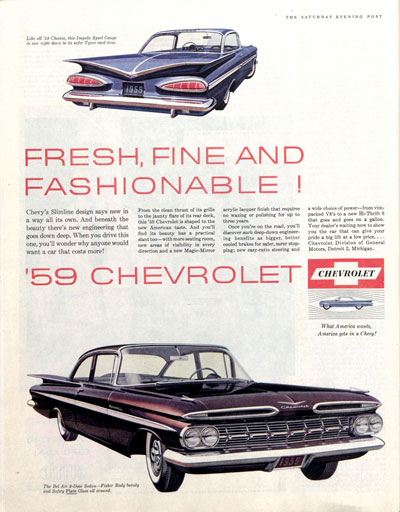
Introduced in 1960, the Corvair featured an air-cooled rear-mounted engine. In his critique of the auto industry published in 1965, Ralph Nader charged that the design made the vehicle unsafe, though subsequent studies have not supported his claims.
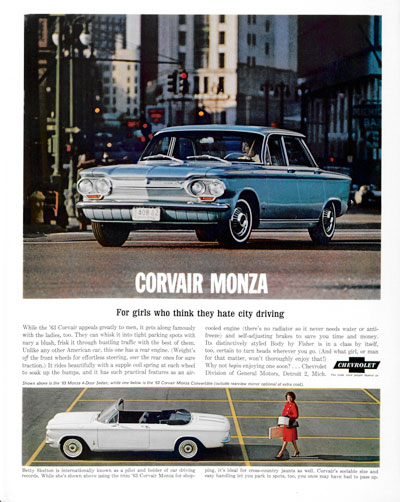
Originally part of the Impala line, Carpice was developed into a full line of models in 1966. With an elegant interior and 325 hp engine, it proved to be a popular model in the luxury car market.
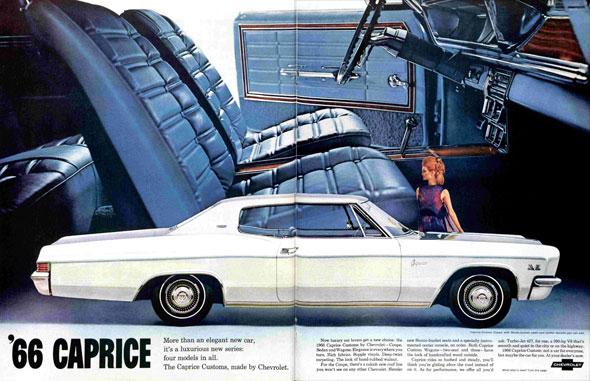
In 1967, Chevrolet introduced the Camaro, one of the first high-performance vehicles subsequently termed “muscle cars.” Marketed as an affordable sports car, the Camaro was Chevy’s response to Ford’s surprisingly popular Mustang.
